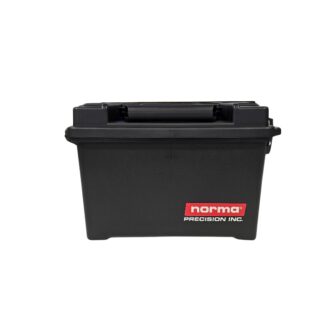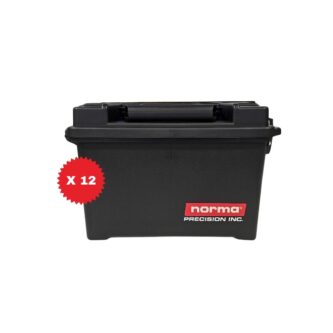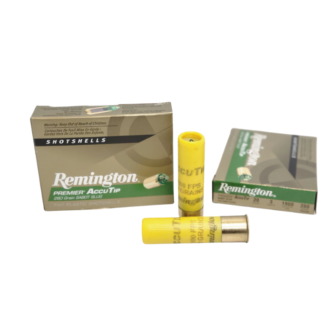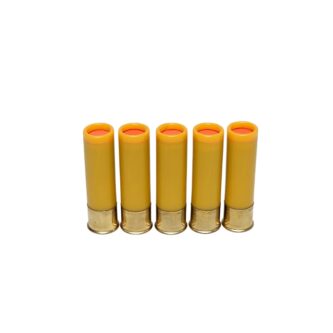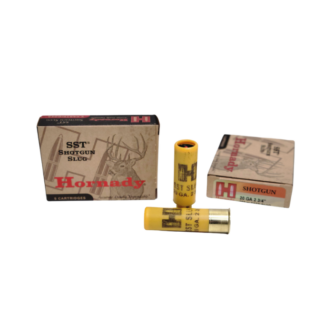When it comes to home defense, the 12-gauge shotgun has long been the go-to choice for many. However, the smaller and often overlooked 20-gauge shotgun is also a viable option for personal protection. In this article, we will explore the pros and cons of using a 20-gauge shotgun for home defense and provide some recommendations for ammunition and firearms.
Understanding the 20 Gauge Shotgun
Before diving into the merits of the 20-gauge shotgun for home defense, it’s essential to understand what makes it different from the more popular 12-gauge. Despite the number 20 being higher than 12, the 20-gauge is actually a smaller shell with less recoil and a lighter weight than its larger counterpart (the 12-gauge), making it a potentially more manageable option for some users. However, it is also less powerful and has less industry support, which are factors to consider when choosing a home defense weapon.
The 20 Gauge vs. the 12 Gauge
The 12-gauge shotgun is the most widely used shotgun for home defense, hunting, and sport shooting, making it the industry standard. This popularity means that there is a wide array of options available for firearms, 12-gauge ammunition, and accessories. On the other hand, the 20-gauge shotgun is the second most popular shotgun, but it still lags far behind the 12-gauge in terms of industry support and available options.
The 20-gauge shotgun has some distinct advantages over the 12-gauge, including less recoil and a lighter weight. These factors can make the 20-gauge more manageable for smaller or less-experienced shooters, potentially leading to better shot placement and increased practice time. However, the reduced power and lack of industry support for the 20-gauge can also be seen as disadvantages compared to the 12-gauge.
20 Gauge Ammo at KIR
The Advantages of the 20 Gauge for Home Defense
Using a 20-gauge shotgun for home defense can provide several benefits, especially for those who may struggle with the recoil and weight of a 12-gauge shotgun.
Reduced Recoil
One of the primary reasons that some people choose a 20-gauge shotgun for home defense is the reduced recoil compared to a 12-gauge. Less recoil typically leads to better shot placement and an increased likelihood of practice, which are crucial factors in effectively using a firearm for personal defense. While the 20-gauge does have less power than the 12-gauge, it can still be a viable option for those who value reduced recoil and better control.
Lighter Weight
Another advantage of the 20-gauge shotgun is its lighter weight, which can make it easier to maneuver and handle for some users. This can be particularly beneficial for smaller statured shooters or those who may struggle with the weight of a 12-gauge shotgun during long practice sessions. While the lighter weight can potentially lead to increased felt recoil, proper shooting technique and the right ammunition can help mitigate this issue.
Potential for Less Over-Penetration
Using a smaller gauge shotgun for home defense may help reduce the risk of over-penetration, which can be a concern when using a firearm indoors. Over-penetration occurs when a projectile passes through an intended target and continues to travel, potentially causing unintended damage or injury. The reduced power of a 20-gauge shotgun can help minimize this risk while still providing effective stopping power for personal protection.
KIR Ammo Stocks a Variety of 20-gauge Ammunition:
We carry a variety of 20-gauge ammo for all kinds of specific uses. Check out our 20-gauge shotgun ammo page for great deals. Or, for a value shopper we have ammunition on sale. As always, fast shipping on ammunition.
The Disadvantages of the 20 Gauge for Home Defense
While the 20-gauge shotgun has some advantages for home defense, there are also several drawbacks to consider when comparing it to the more popular 12-gauge.
Lack of Industry Support
As mentioned earlier, the 20-gauge shotgun suffers from a lack of industry support compared to the 12-gauge. This means that there are fewer options available for firearms, ammunition, and accessories specifically designed for home defense. While it is possible to find suitable options for a 20-gauge shotgun, the selection will be much more limited than for a 12-gauge.
Limited Ammunition Options
One of the most significant disadvantages of the 20-gauge shotgun for home defense is the limited selection of ammunition specifically designed for personal protection. Most 20-gauge ammunition options are geared towards hunting, with smaller buckshot sizes such as #2, #3, and #4 being the most common. These smaller buckshot sizes may be less effective for personal defense than the larger #00 and #1 buckshot typically used in 12-gauge loads.
Possible Increased Felt Recoil
While the 20-gauge shotgun has less recoil than a 12-gauge, the lighter weight of the firearm can sometimes lead to increased felt recoil for the shooter. This can be a disadvantage for those who are looking for a home defense weapon with less recoil than a 12-gauge. However, proper shooting technique and
choosing low-recoil ammunition can help mitigate this issue.
Sometimes Expensive
Due to the lack of available 20-gauge ammunition, this particular shell can sometimes be expensive and difficult to get. However, when it comes to ammunition used specifically for protection and home defense, a box or a few boxes of the right 20-gauge shells hopefully lasts a lifetime!
Choosing the Right 20-Gauge Shotgun
If you decide that a 20-gauge shotgun is the right choice for your home defense needs, there are several factors to consider when selecting a firearm.
Pump-Action vs. Semi-Auto
Both pump-action and semi-automatic 20-gauge shotguns are available on the market, and each has its advantages and disadvantages. Pump-action shotguns are generally more affordable and reliable, but they require more effort to operate and may not be the best choice for novice shooters. Semi-automatic shotguns offer faster follow-up shots and can help reduce felt recoil, but they can be more expensive and may require more maintenance.
Barrel Length
For home defense purposes, a shorter barrel length is usually preferred, as it makes the shotgun easier to maneuver in tight spaces. A barrel length of 18-20 inches is typically recommended for home defense shotguns.
Stock Options
Being able to properly fit the shotgun to the individual shooter is essential for effective use. Look for a 20-gauge shotgun that offers adjustable stocks and forends, allowing you to customize the fit for better control and comfort.
Accessory Options
Having access to accessories such as light mounts, sights, extended magazine tubes, and ammo carriers can help improve the effectiveness of your 20-gauge shotgun for home defense. Look for a firearm that offers compatibility with these accessories or consider aftermarket options to customize your shotgun.
Selecting the Right 20-Gauge Ammunition
Choosing the right ammunition for your 20-gauge shotgun is critical for effective home defense. As mentioned earlier, options for 20-gauge personal defense ammunition are limited, but there are still some viable choices available.
Buckshot Loads
When selecting ammunition for home defense, it’s essential to choose buckshot loads over birdshot. Buckshot, such as #00, #1, or even #4, will provide superior stopping power and penetration compared to birdshot, which is designed for hunting small game. Some options to consider for 20-gauge buckshot loads include:
- Hornady 20 Gauge SST Slugs at 1800 fps
- Federal Premium 20 Gauge 3 inch 3/4oz. TRUBALL Rifled Slug Hollow Point
- Remington Premiere 20 Gauge 3″ AccuTip Bonded Sabot Slug
Low-Recoil Loads
For those looking to reduce felt recoil, low-recoil buckshot loads for the 20-gauge can be challenging to find but are worth considering if available. These loads will typically have a lower muzzle velocity than standard loads, helping to reduce recoil while still providing effective stopping power.
A 20-Gauge Might be the Perfect Home-Defense Choice for Women:
A 20-gauge shotgun can be an excellent self-defense weapon for women for several reasons:
- Reduced Recoil: Compared to a 12-gauge, a 20-gauge shotgun has significantly less recoil, making it more manageable for those with smaller frames or less upper body strength. Less recoil often leads to better shot placement, which is critical for effective self-defense.
- Lighter Weight: A 20-gauge shotgun is lighter than a 12-gauge, making it easier to handle, maneuver, and aim, particularly in high-stress situations. This can be particularly beneficial for women who may find a 12-gauge shotgun too heavy or cumbersome.
- Ease of Use: 20-gauge shotguns are straightforward to use, which is crucial for self-defense situations when there is little time to think about how to operate the firearm.
- Available Ammo: While the 20-Gauge doesn’t have as many options as the 12-Gauge, there are enough options still to make this smaller firearm pack plenty of knock-down, killing power. The right 20-gauge shell or slug is always an important consideration for home defense.
- Training and Practice: The reduced recoil and lighter weight of the 20-gauge can lead to more comfortable and extended practice sessions. Proficiency with any firearm used for self-defense is vital, and a weapon that is comfortable to train with encourages regular practice.
While these factors make a 20-gauge slug potentially well-suited for women, it’s essential to remember that personal comfort with and confidence in handling a firearm are the most critical factors in choosing a self-defense weapon.
While the 20-gauge shotgun may not be the first choice for many when it comes to home defense, it can still be a viable and effective option with the right firearm and ammunition choices. Carefully consider the advantages and disadvantages of the 20-gauge compared to the more popular 12-gauge and decide if it’s the right choice for your personal defense needs. Remember that proper shooting technique and regular practice are essential for effective home defense, regardless of which gauge shotgun you choose.
